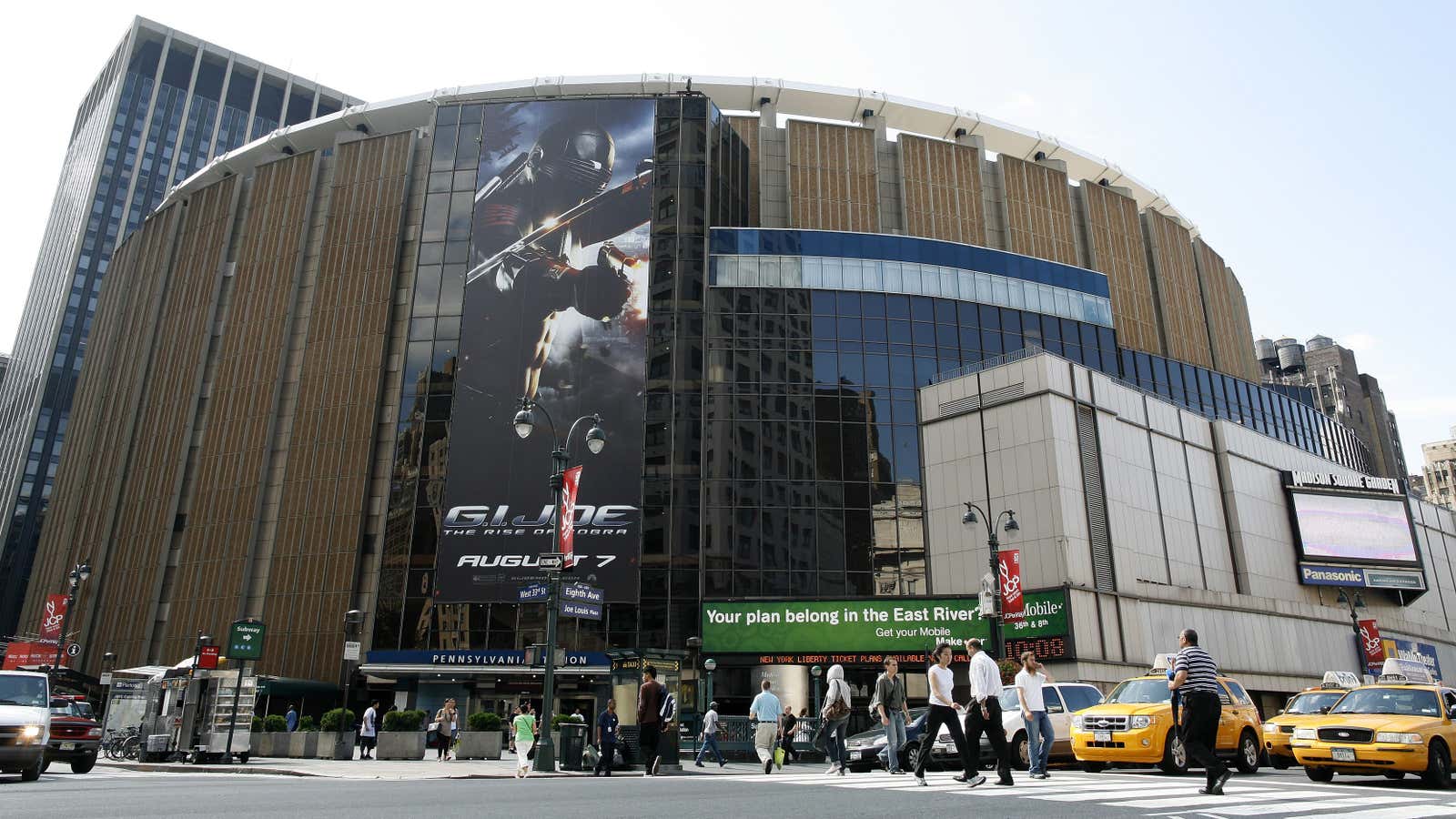If you’ve attended a concert or sporting event at Madison Square Garden recently, it’s possible you’ve been analyzed and recorded by a facial recognition system, a report from the New York Times finds.
Details are scarce, but the Times describes a system that records customers at the Manhattan arena and matches faces to a database to identify individuals and determine if they are “considered a problem.”
Facial recognition technology isn’t illegal. Still, many privacy advocates object to the software’s widespread use since it allows silent surveillance without consent.
“Facial recognition can be used for general surveillance in combination with public video cameras, and it can be used in a passive way that doesn’t require the knowledge, consent, or participation of the subject,” the ACLU writes.
Private organizations like the Garden can also use the surveillance technology for more than security. The technology can theoretically track what fans purchase in the building or are specifically interested in, so they can be targeted with advertising.
While news articles coming from China paint a picture of government-funded companies funneling technology to an ever-watchful regime, the United States is seeing a more decentralized spread of the technology. It’s being adopted piecemeal, by state DMVs and independent entities like the Garden. Police departments are also beginning to test body-worn cameras with the capability of being used for facial recognition down the line.
Some companies, like Delta Air Lines, are even pitching as a convenience.
